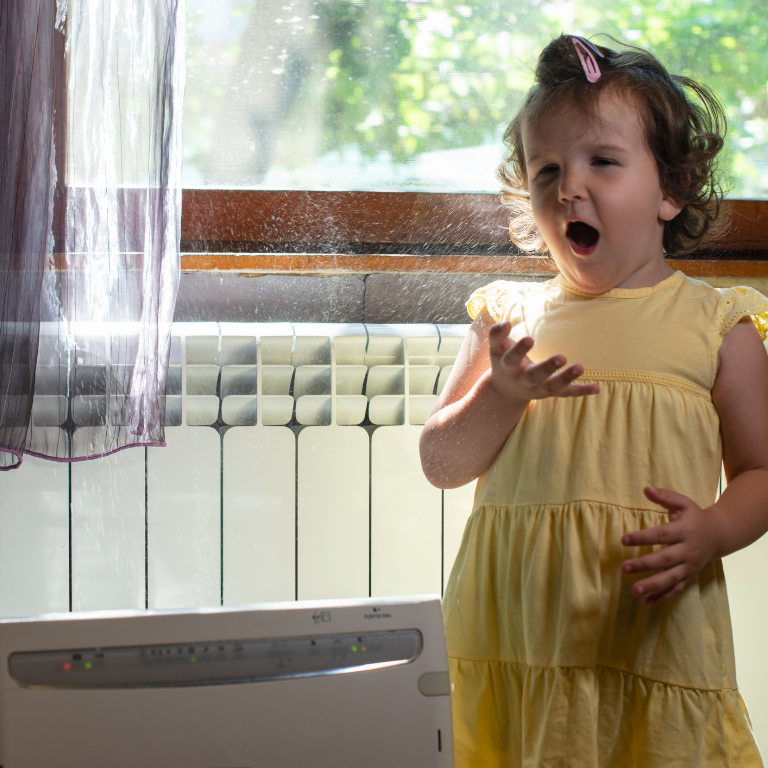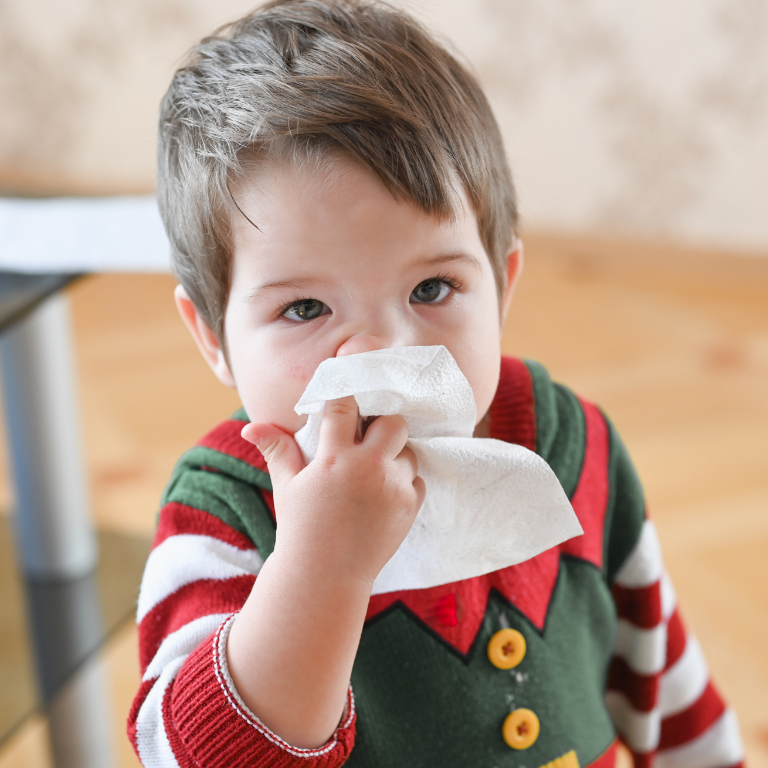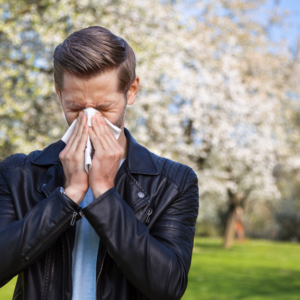Similar to adults, hayfever in kids will experience symptoms such as sneezing, runny nose, and watery eyes. Learn about the signs to watch for and strategies to reduce their discomfort.
Is your child constantly sneezing and experiencing a runny nose and watery eyes? Don’t be surprised, as hay fever affects not just adults but also children, triggered by factors such as airborne pollen, pet dander, and household dust. According to a Trusted Source, seasonal allergies impact almost 1 in 5 kids (18.9%).
While witnessing your child suffer from allergies can be distressing, there are measures you can adopt to alleviate their symptoms. Additionally, if their allergies are seasonal, they will most likely subside on their own as the climate shifts.

What exactly is hayfever in kids?
Hay fever, also called seasonal allergies or seasonal allergic rhinitis, is when the lining of the sinuses becomes inflamed due to an allergic reaction. This can cause cold-like symptoms in both kids and adults. So, if you or your little one are experiencing sneezing, runny nose, and watery eyes during certain times of the year, it could be hay fever!
What signs indicate hayfever in children?
Usually, the symptoms of hay fever in children are quite similar to those experienced by adults. If your child’s immune system is responding to an airborne allergen, they may encounter the following indications:
- Sneezing
- Runny nose
- Sinus congestion
- Itchy, watery eyes
- Coughing
What triggers hayfever in children?
The name ‘hay fever’ can be misleading since it doesn’t arise from hay and doesn’t cause a fever in your child. Instead, hay fever occurs when certain plants such as trees, flowers, grasses, and weeds release pollen into the environment.
If your child is allergic to this pollen, their immune system reacts by producing histamine, which is released into their bloodstream. The histamine release leads to inflammation, resulting in uncomfortable respiratory symptoms.
How do doctors diagnose hayfever in kids.
You may be able to recognize hay fever in your child by observing their symptoms.
If their symptoms are seasonal, changing with the weather, it’s a strong indication of hay fever. According to the American College of Allergy, Asthma, and Immunology, spring allergies – which are usually the most troublesome – start in February and last until early summer in the United States. Consider whether this is when your child experiences their symptoms.
Similarly, if your child’s symptoms appear to come and go depending on their environment, such as when they’re near a pet or in a dusty area, this could also be a sign of hay fever.
If you take your child to their pediatrician for a diagnosis, the doctor may conduct tests to eliminate other potential causes of their symptoms, such as asthma. They may also refer you to an allergist who can conduct skin prick tests to accurately identify what your child is allergic to. These tests can often identify whether your child is allergic to grass, specific pollen types, or flowers, for example.
How can hayfever be treated in kids?
There are various ways to treat hay fever in children, many of which can be done at home. Over-the-counter antihistamine medications designed for children with seasonal allergies are available, but it’s important to consult your child’s doctor before administering any medication.
Nasal sprays, cold compresses applied to the face, and neti pots can also help relieve nasal congestion in children.
Reducing allergens in your home can also be effective. The American Academy of Pediatrics recommends washing linens weekly, replacing pillows every 2 to 3 years, keeping children away from piles of dead leaves, and using allergen-proof zip-up covers on mattresses and cushions.
What factors increase the risk of hayfever in children?
Why do some kids develop hayfever while others don’t? Certain factors may increase a child’s likelihood of experiencing hayfever, such as having a family member with seasonal allergies, having eczema or other allergies like food allergies, or living in environments with a high presence of allergens.
What is the prognosis for children with hayfever?
Hayfever can persist into adulthood, although some children may outgrow it. Unfortunately, there is no cure for this condition, but with appropriate medication and lifestyle changes at home, symptoms can be effectively managed and reduced, making it easier for kids to cope with this recurring issue.





